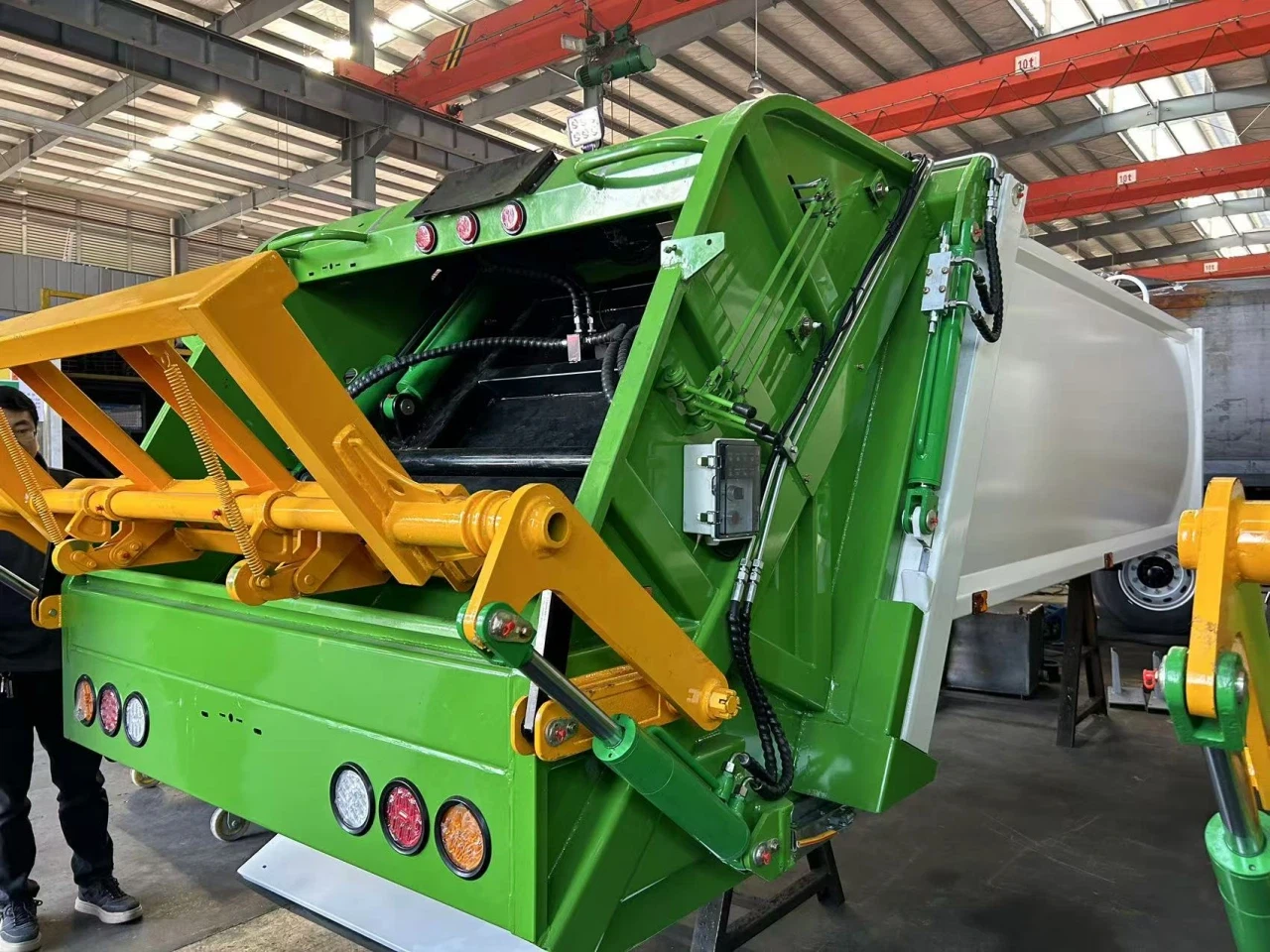Hook loader trailers are essential equipment in construction, waste management, and various transport industries. They offer versatility and efficiency, making them a go-to choice for many operators. This article dives deep into the world of hook loader trailers, covering their features, benefits, types, tips for use, maintenance, and more. Whether you’re a first-time buyer or a seasoned operator, this comprehensive guide will help you understand the ins and outs of hook loader trailers.
What is a Hook Loader Trailer?
A hook loader trailer is a type of trailer designed to load, transport, and unload containers through a hook-lift mechanism. This innovative design allows operators to easily swap containers, offering flexibility in transporting various materials, including construction debris, waste, and other goods. The mechanism consists of a hook, lift arm, and hydraulic system, which work together to lift and lower the container onto and off the trailer.
How Hook Loader Trailers Work
Basic Mechanism
The operation of a hook loader trailer involves several key components:
- Hook: The hook attaches to a fitting on the container.
- Lift Arm: This arm raises and lowers the container as needed.
- Hydraulic System: The hydraulic system powers the lift arm, providing the necessary force to load and unload containers.
Step-by-Step Loading Process
- Position the trailer near the container you wish to load.
- Engage the hydraulic system to extend the lift arm.
- Hook the hook onto the container fitting.
- Retract the lift arm to lift the container off the ground.
- Adjust the arm to secure the container onto the trailer.
Types of Hook Loader Trailers
Choosing the right type of hook loader trailer is crucial for optimizing your operations. Here are the common types:
1. Standard Hook Loader Trailers
These trailers are typically designed for general-purpose use and can handle a variety of containers. They are versatile and suitable for many applications.
2. Heavy-Duty Hook Loader Trailers
Heavy-duty models are built to accommodate larger and heavier loads, making them ideal for construction sites and industrial applications. They often feature reinforced frames and stronger hydraulic systems.
3. Mini Hook Loader Trailers
Mini trailers are designed for smaller jobs and can be particularly useful in urban areas or for companies with limited storage space. They are lightweight and easy to maneuver.
Benefits of Hook Loader Trailers
Versatility
One of the main benefits of hook loader trailers is their versatility. They can easily switch between containers for waste, construction materials, and even specialized loads.
Efficiency
Hook loader trailers save time during loading and unloading, as they can quickly detach and attach containers without needing additional equipment or personnel.
Cost-Effectiveness
By combining the functions of multiple vehicles into one system, hook loader trailers can reduce operational costs, fuel consumption, and labor expenses.
Choosing the Right Hook Loader Trailer for Your Needs
Load Capacity
When selecting a hook loader trailer, consider the maximum load capacity. Ensure it matches your operational requirements to avoid overloading.
Container Compatibility
Different hook loader trailers may be compatible with specific types of containers. Make sure to check the compatibility with your existing containers.
Durability and Construction
Look for trailers constructed with high-strength materials to ensure durability and long-term performance, especially in demanding environments.
Maintenance Tips for Hook Loader Trailers
Regular Inspections
Conduct regular inspections to check for wear and tear, especially on the hydraulic system and loading components.
Hydraulic Fluid Checks
Monitor hydraulic fluid levels and replace them per the manufacturer’s recommendation to ensure optimal performance.
Brake System Maintenance
Routine maintenance of the brake system is crucial for safety. Ensure brakes are functioning correctly and replace brake pads as needed.
Common Applications of Hook Loader Trailers
Construction Sites
Construction companies often use hook loader trailers for transporting heavy materials like concrete, steel, and debris from site clearance.
Waste Management
Hook loaders are popular in the waste management industry for their ability to easily switch containers for different types of waste.
Landscaping and Agriculture
In landscaping, these trailers can transport soil, mulch, and other materials. Agricultural operations use them for transporting produce and supplies.
Practical Examples of Using Hook Loader Trailers
Example 1: Construction Project
A construction company uses a heavy-duty hook loader trailer to transport debris from a site. The operator quickly loads a container filled with concrete rubble and swaps it out for an empty container, minimizing downtime.
Example 2: Waste Management
A municipal waste management company employs a hook loader trailer that allows crews to quickly switch between containers for recyclable materials, organic waste, and general garbage, improving efficiency in collection services.
FAQs About Hook Loader Trailers
1. What is the average cost of a hook loader trailer?
The cost of a hook loader trailer varies significantly based on size and features. A standard model may start at around $10,000, while heavy-duty versions can exceed $50,000.
2. How much weight can a hook loader trailer haul?
Hook loader trailers can typically haul between 10,000 to 30,000 pounds, depending on the model and specifications. Always consult the manufacturer’s guidelines for exact weight ratings.
3. Can hook loader trailers be used for multiple purposes?
Yes, one of the key advantages of hook loader trailers is their ability to transport various types of containers for different applications, ranging from construction waste to general goods.
4. What maintenance is required for hook loader trailers?
Regular maintenance includes checking hydraulic fluid levels, inspecting brakes, and ensuring all moving parts are in good condition. It’s also important to inspect the hook and chains for wear periodically.
5. How do I know if a hook loader trailer is right for my business?
Evaluate your typical load needs, the types of materials being transported, and your operational requirements. If versatility and efficiency are priorities, a hook loader trailer is likely a good fit.
6. What is the lifespan of a hook loader trailer?
With proper maintenance, a hook loader trailer can last well over 10-15 years, depending on usage and environmental conditions. Regular inspections help extend its lifespan.





